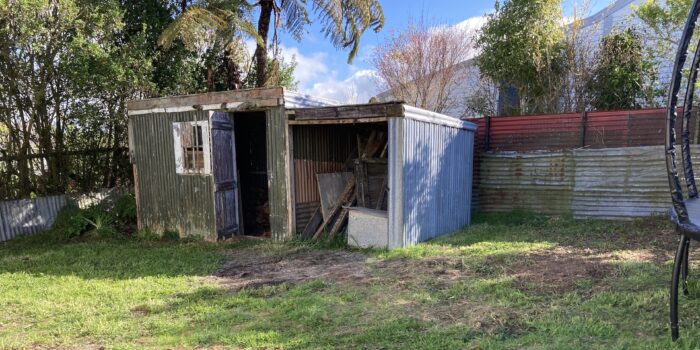How To Spot A Financial Scam
Scams have been around forever, and no doubt they always will be. They just evolve with the times and the tools available to us all. So how do you spot a financial scam these days and protect yourself AND your hard earned money? Read on!
(By the way, I have a specific post talking about how you can recognise a scam on Instagram. Read it here.)
Basics of keeping yourself safe from financial scams
The very basics of keeping yourself safe form financial scams are hopefully familiar to most of us, but here is a reminder:
- Don’t click through links you get through email or text message
- Don’t put your bank log in details on 3rd party sites
- Don’t give any bank details over the phone, especially if the call isn’t initiated by you
Monitoring your bank accounts regularly is also a great way to catch any suspicious activity quickly and put a stop to it early.
For example, I’m a bit obsessive in checking my bank balances often multiple times per day.
Years ago, I had just been paid the night before, checked the balance in the morning and transferred money to various accounts (savings, bills, etc.). Then I checked again a few hours later and my account had $200 missing.
I immediately called the bank and found out my card had been used on European escort service sites! They disputed the payments, cancelled my card and sent me a new one.
I, to this day, don’t know where my card details got taken (I had my suspicion but could never confirm), I’m just glad I noticed quickly. It took about 3 months to get my money back though.
While I’m not telling you that you need to check your bank accounts multiple times per day, I still recommend you check them regularly, once every few days maybe.

How to spot a financial scam and what are the common ones
First of all it is important to understand that in New Zealand it is illegal to offer certain financial products (such as shares) in unsolicited meetings (such as phone calls). You can find this in section 34 of the Financial Markets Conduct Act 2013 (here).
So, if someone calls you and offers to sell you company shares or shares in a managed fund, that is already illegal under New Zealand legislation and should get your alarm bells ringing.
There are many types of scams and being aware of them can hopefully help you in spotting a scam if you encounter one.
Boiler room
A boiler room scam involves getting cold calls trying to convince you to invest in something. The callers can be very persistent and convincing and you might receive calls from the “executives” in the company to make you feel important and special.
As mentioned above, these types of unsolicited offers are illegal in New Zealand.
Always talk to someone before investing! And if they won’t leave you alone, ignore calls or block the numbers.
Ponzi scheme
Ponzi scheme is a famous type of scam where the scammer creates an illusion of great investment returns by paying the initial investors with the money paid by new investors.
These scams spread through word of mouth, by initial investors telling the people they know about the great investment “returns” and encouraging others to participate.
Ponzi schemes can be hard to recognise, especially if the scammer is a good and convincing liars who can produce detailed investment statements.
Some red flags may be the promise of much higher returns than anywhere else and secretive investment strategies to reach those returns.
Share scam
Share scam is similar to a boiler room scam where the scammer offers to buy shares on your behalf, but either won’t do it at all, charge you more than the shares are worth or the companies in question don’t exist at all.
They often use high pressure tactics (like get in quick before the company gets listed on the sharemarket), request more money after initial investment and have fees to sell your shares and get your money back (among other things.
Recovery scam
Recovery scams are out there to get you when you are already down.
They target those who have already been victims of scams and offer to recover the money you’ve lost for a fee.
They may work with the original scammers or have bought your details from the original scammers.
Or if you’ve shared your details and experience publicly you may become a target of this type of scam.
Imposter websites
The tough thing is that you need to stay vigilant out there as scammers can impersonate real finance company websites.
Here are some things you can check to make sure that the website you are visiting is legitimate:
- Check that the website domain name is correct and matches the website contents (for example the domain name of this website is www.love-of-finance.com)
- Check that the phone numbers and addresses provided on the site are consistent and based in the right location
- Check if the website claims to offer high return or makes vague claims of guarantees
You can also check claims of being licensed in New Zealand and if you are feeling suspicious find a way to contact the company through independent source.
Pig butchering
Pig butchering is a particularly awful scam. It is the term used for romance-investment scams.
These scammers lurk on dating apps and sites and once a genuine feeling connection is established they will start talking about their investments, eventually offering or encouraging and often even pressuring you to join the same investment platform.
These platforms are usually made to look very legitimate and you’ll often see strong investment growth encouraging you to invest more.
The scammers will usually keep pressuring you to invest more using tactics like “you’ll lose investment returns if you don’t” and problems will arise if you move to want to withdraw the funds.
At this stage they might playing on your trust and affection for them, for example “don’t you trust me” and so forth. If you keep pressuring them to withdraw your money they will often disappear altogether.
Therefore it is the safest to not take investment suggestions from someone you have solely met online.
Here you can read the FBI’s public announcement on these scams.

AI impersonating
Personally I find the AI impersonating scams you now hear about really scary.
The AI technology can allow scammers to use your likeness, or that of others and use it to scam you (even in a video chat!). Voices can be “stolen” now too.
For example I have heard of a scam where a parent gets a phone call from their “child” in trouble needing money.
And recently a video impersonating scam was in the New Zealand news as it involved someone impersonating a Kiwi actor, Karl Urban, and trying to scam his fans. Read it here.
What to do if you spot a financial scam
As you can see from the above list, there are many scams out there. And the list I’ve given you here unfortunately isn’t complete, there are many other types of scams and new ones will pop up eventually as well.
The Financial Markets Authority (FMA) is a New Zealand Government body that regulates the conduct within the financial markets in NZ. This means that they monitor behaviour within the market, specifically the behaviour of those who offer financial services.
FMA has information on their website on different scams and people’s personal stories from being scam victims. They also issue warnings when they are alerted to suspicious activity by someone.
If you believe you have spotted a financial scam relating to investments, they encourage you to report it to them.
Unfortunately most of the scams we may encounter operate from overseas, and once your money leaves New Zealand, there is no way to recover.
If you believe you have been scammed, it is best to report it and stop any further contact. If you are asked to pay more money to “release” your funds, this is another attempt to get more of your money.
Legitimate platforms do not require you to pay a fee in advance to get your money out.
This is why it is so important to protect yourself and prevent that from happening in the first place.
Stay vigilant, do independent research before investing and listen to your gut. You can check any warnings FMA may have issued but remember that just because something isn’t there, doesn’t guarantee it is safe. It may just mean it hasn’t been reported yet.
Talking to someone you know and trust about an investment opportunity before taking part can also help you see if the opportunity is legitimate, or confirm your suspicions about it.
What kind of scams have you encountered? Share below and raise awareness!







